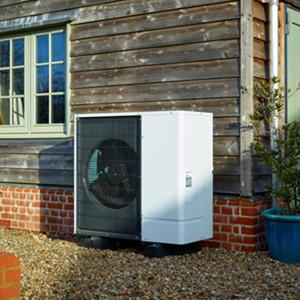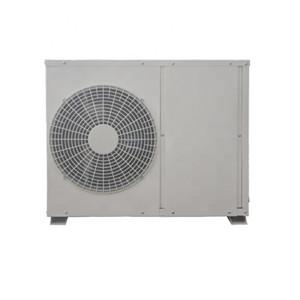Air Source Heat Pump Efficiency in Cold Weather
When you bring up the topic of heat pumps, there will inevitably be a
question: but do they work in the cold? It has always been thought that heat
pumps cannot withstand the extreme cold in the northern Midwest or in winter.
Is this really true?
The air source heat pump heats your home by absorbing heat from the
outside air and transferring the heat to the air circulating throughout the
home. Although it may feel refreshing outdoors, there is usually plenty of heat
to provide enough heating for your home.
But what if you live in a cold climate? The temperature in winter will
drop to around -10 °C. You might be thinking, how can the heat in the ground or
the surrounding air be enough to heat your home? We have already answered this
question and more in this useful article, please keep reading to learn more.
How the heat pump works?
The heat pump uses the heat in the air or the surrounding ground as the
main energy source. They use a small amount of electricity to extract this
energy from the surrounding environment and enter a heat exchanger, sometimes
called an evaporator. In this heat exchanger, heat is absorbed by the
refrigerant, and the refrigerant evaporates and becomes a gas. Even at an
extremely low temperature of -20 °C, the refrigerant can absorb heat, which is
why the heat pump can work in cold climates.
This evaporated refrigerant is then compressed, which further increases
the temperature. The gas can then transfer its heat to your home's central
heating system. When this happens, the refrigerant will gradually cool down
until it condenses into a liquid again. This happens in the second heat exchanger,
also called the condenser. In the condenser, the colder water from the central
heating system can continue to absorb any heat, and then transfer the heat to
your home through any radiator or underfloor heating system. Or, it can be used
to provide hot water to your faucet through an air cylinder.
Finally, the colder refrigerant passes through the expansion valve. The
pressure drops, the refrigerant returns to the evaporator, and the whole
process starts again.
How good is a heat pump in cold weather?
Now that you know how a heat pump works, you may still want to know how
the system absorbs heat from the ground or the air when it is below zero.
Under normal circumstances, the ground temperature is usually not lower
than 10 °C. Although this may not be warm for us, the heat pump can still
absorb some heat to warm your home. Even if an air source heat pump is used,
ambient heat can be used. Remember, Celsius is man-made, and zero degrees does
not mean that there is no heat in the air at all. If the heat is zero, the
temperature of the earth will reach -273.
As long as you have purchased a suitable heat pump, your heat pump will
continue to work in cold weather. Every heat pump is different, and you need
the right equipment to ensure that your home can be heated throughout the
winter.
How efficient is the heat pump in cold weather?
Your heat pump will not be as efficient in cold temperatures as in mild
conditions. More power may be required to remove the heat from the air, which
will result in reduced efficiency.
Use coefficient of performance (COP) to measure heat pump efficiency.
This is calculated by comparing the input and output. For example, if an air
source heat pump uses 1 kW of electricity to generate 3 kW of heat, the COP is
3. The higher the COP, the better, because it indicates that your heat pump is
more efficient.
If you do live in a very cold climate, you may benefit more from ground
source heat pumps. This is because the ground temperature is often higher than
the air temperature. Therefore, the ground source heat pump can run with less
electricity and can generate more heat.
When the outdoor temperature is 8.3 °C, your heat pump can reach
approximately 3.8 COP. However, if the temperature drops to around -8.3 °C,
your heat pump efficiency may drop to around 2.3 COP. If the outdoor
temperature drops too low and your heat pump cannot generate any heat, you may
need to spare it.
If you take good care of it, your heat pump will maintain its efficiency for a longer period of time. You should ensure that your system is repaired every 12 months. This will not only ensure that everything runs safely, but you will also feel happier knowing that your heat pump can bring warmth to your home throughout the winter. If you have an air source heat pump, you should remove all debris in the area to prevent airflow from being blocked. This may reduce the efficiency of the heat pump. You may also need to check the filter regularly and replace it when needed. It is best to have any maintenance performed by a qualified engineer.






